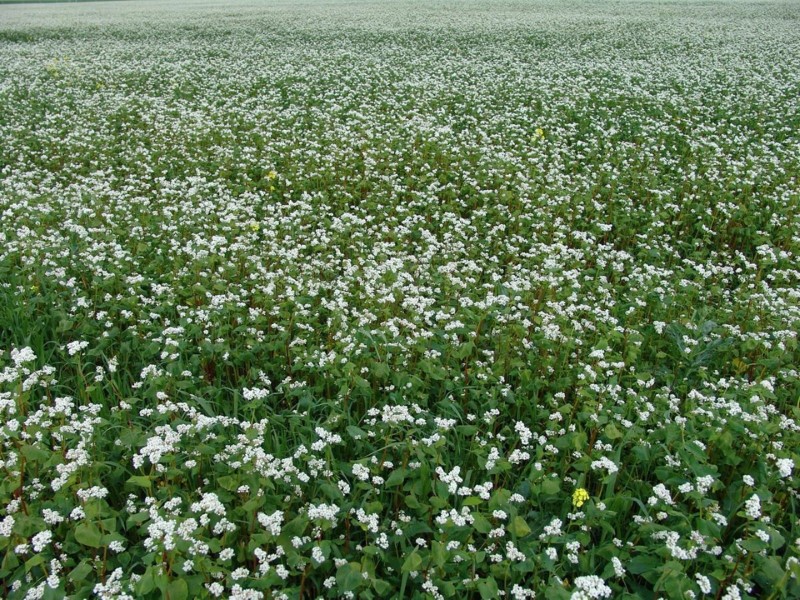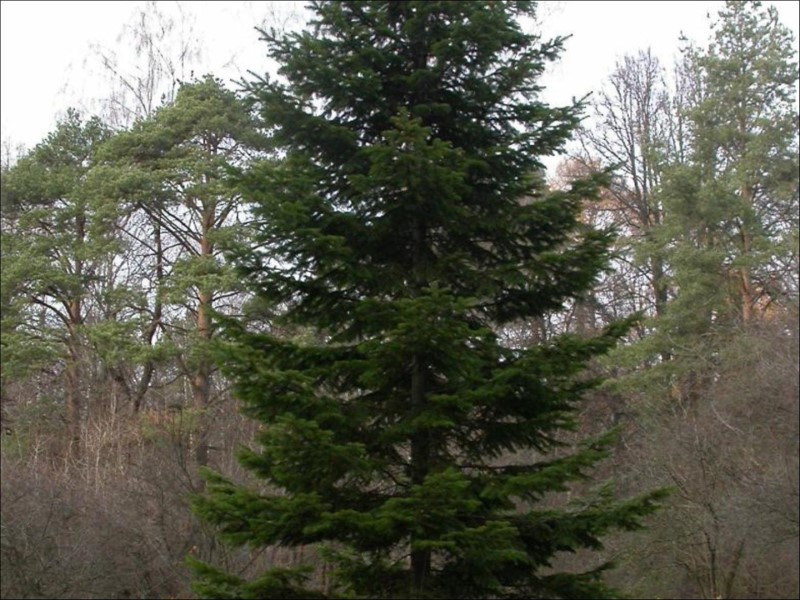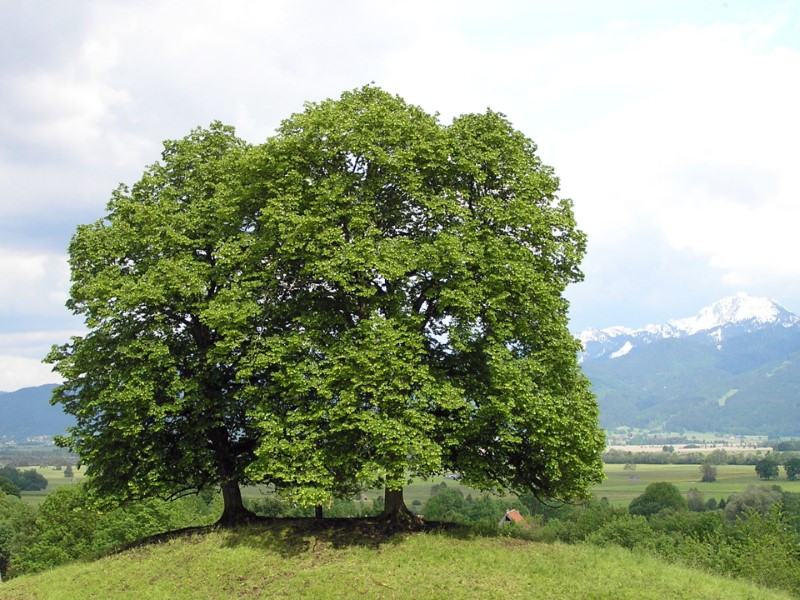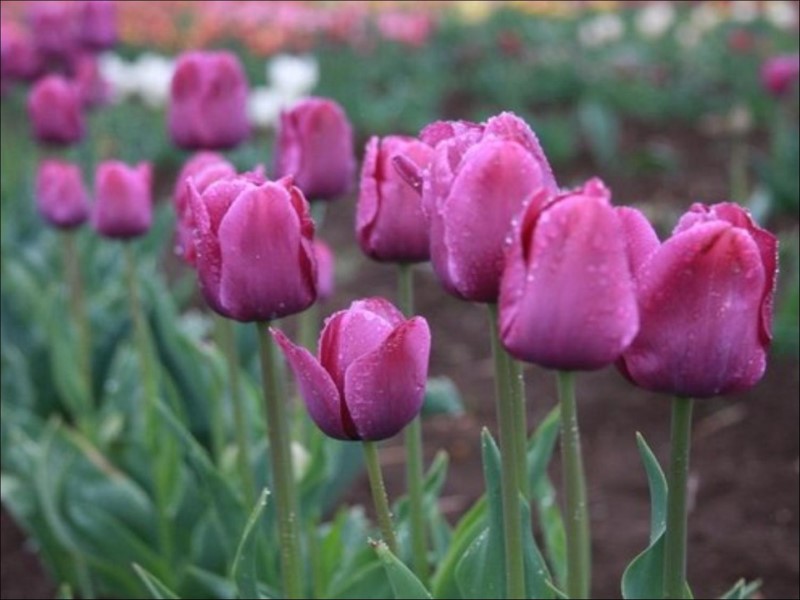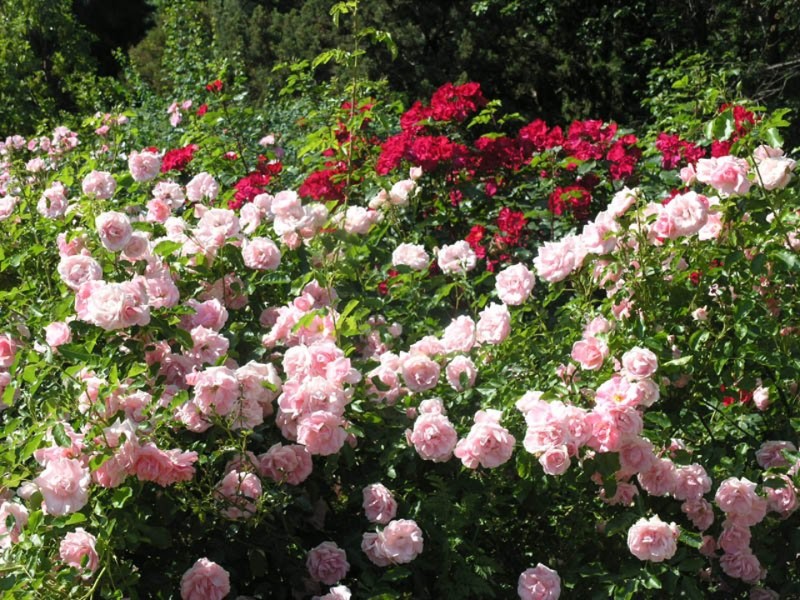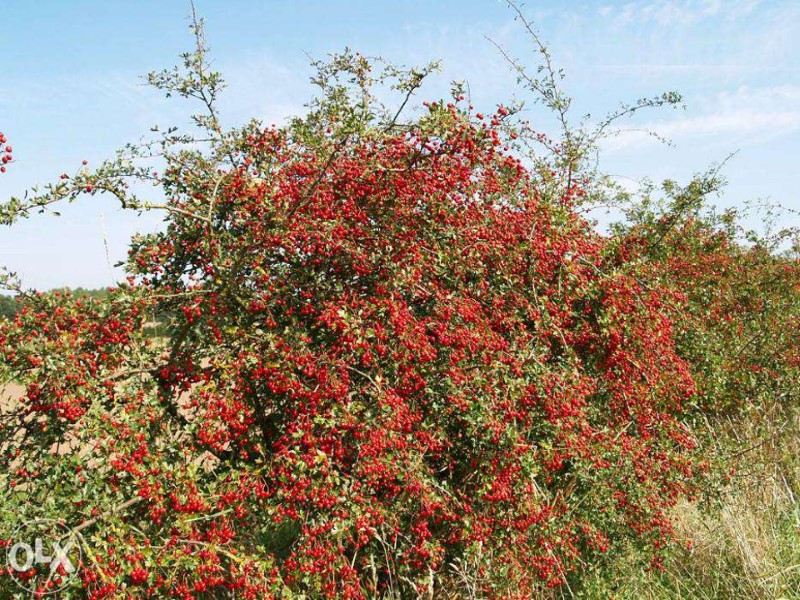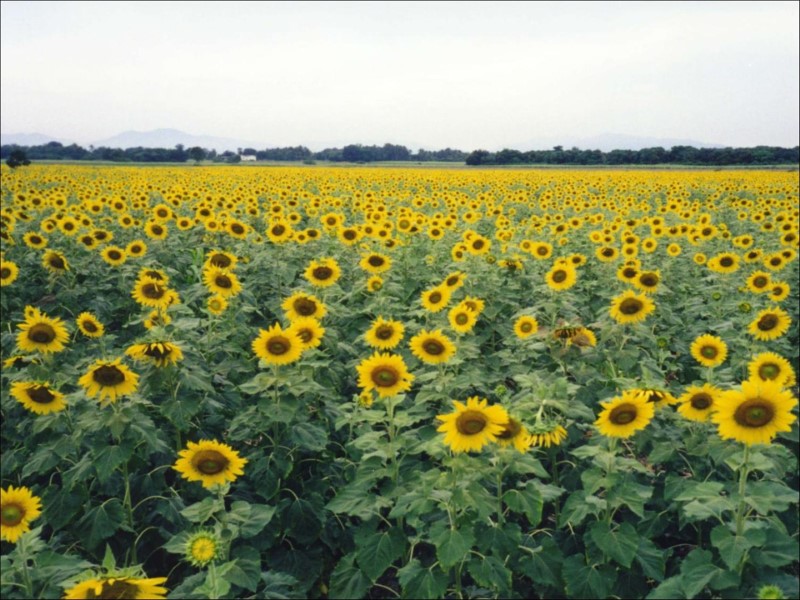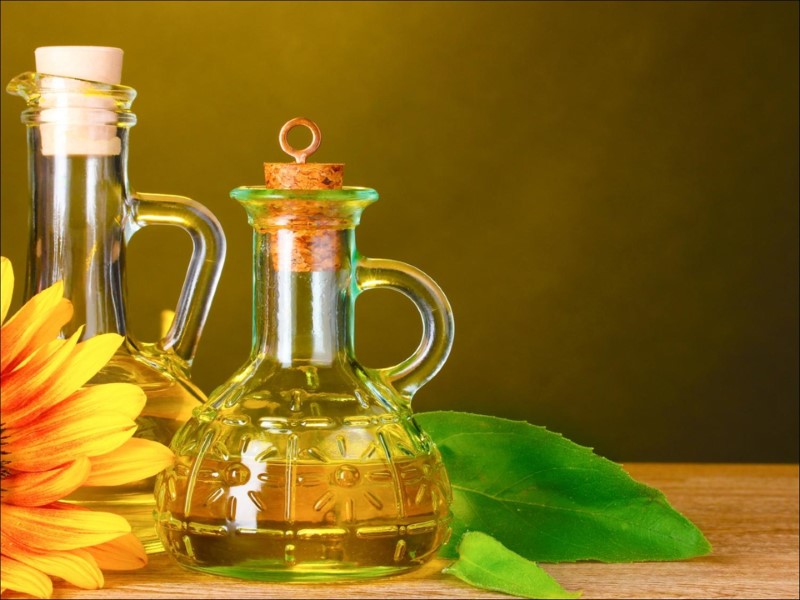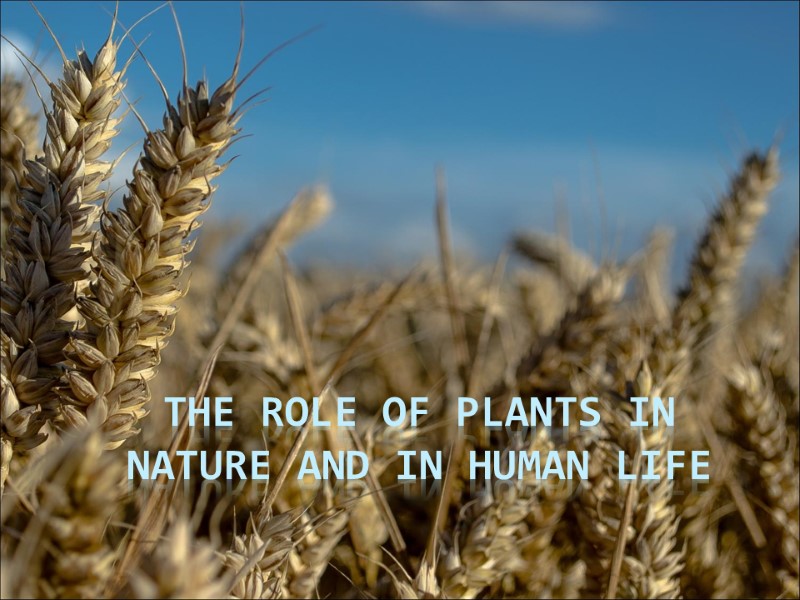 The role of plants in nature and in human life
The role of plants in nature and in human life
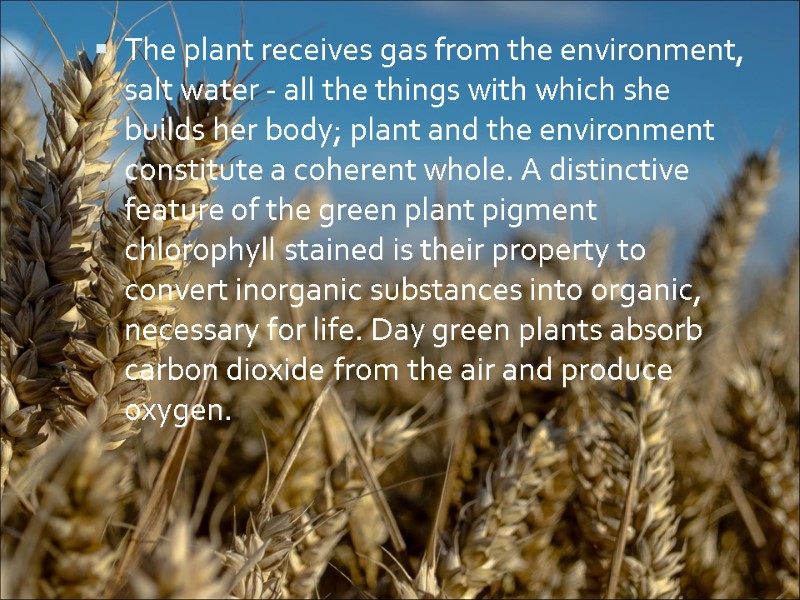 The plant receives gas from the environment, salt water - all the things with which she builds her body; plant and the environment constitute a coherent whole. A distinctive feature of the green plant pigment chlorophyll stained is their property to convert inorganic substances into organic, necessary for life. Day green plants absorb carbon dioxide from the air and produce oxygen.
The plant receives gas from the environment, salt water - all the things with which she builds her body; plant and the environment constitute a coherent whole. A distinctive feature of the green plant pigment chlorophyll stained is their property to convert inorganic substances into organic, necessary for life. Day green plants absorb carbon dioxide from the air and produce oxygen.
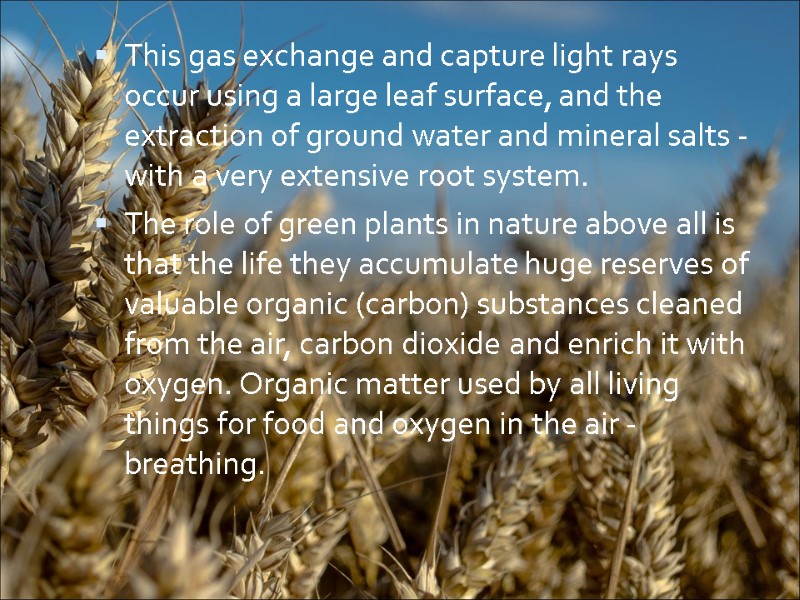 This gas exchange and capture light rays occur using a large leaf surface, and the extraction of ground water and mineral salts - with a very extensive root system. The role of green plants in nature above all is that the life they accumulate huge reserves of valuable organic (carbon) substances cleaned from the air, carbon dioxide and enrich it with oxygen. Organic matter used by all living things for food and oxygen in the air - breathing.
This gas exchange and capture light rays occur using a large leaf surface, and the extraction of ground water and mineral salts - with a very extensive root system. The role of green plants in nature above all is that the life they accumulate huge reserves of valuable organic (carbon) substances cleaned from the air, carbon dioxide and enrich it with oxygen. Organic matter used by all living things for food and oxygen in the air - breathing.
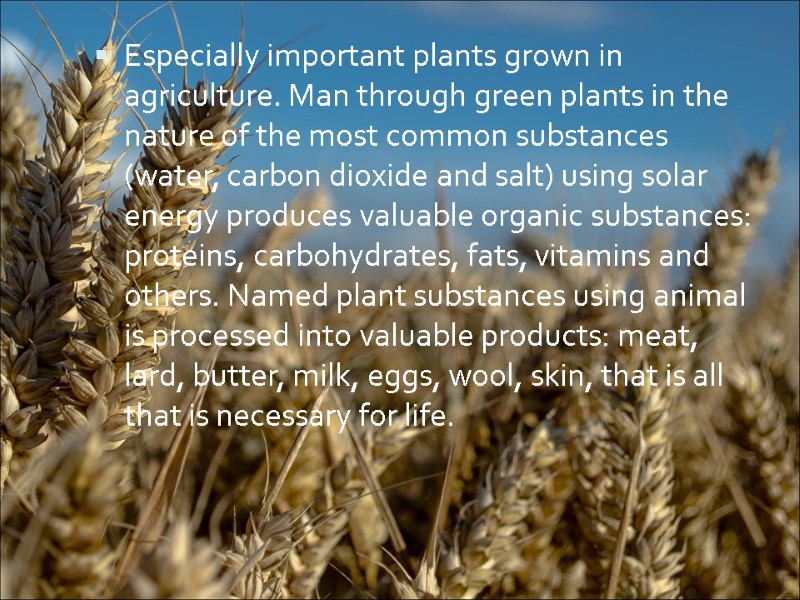 Especially important plants grown in agriculture. Man through green plants in the nature of the most common substances (water, carbon dioxide and salt) using solar energy produces valuable organic substances: proteins, carbohydrates, fats, vitamins and others. Named plant substances using animal is processed into valuable products: meat, lard, butter, milk, eggs, wool, skin, that is all that is necessary for life.
Especially important plants grown in agriculture. Man through green plants in the nature of the most common substances (water, carbon dioxide and salt) using solar energy produces valuable organic substances: proteins, carbohydrates, fats, vitamins and others. Named plant substances using animal is processed into valuable products: meat, lard, butter, milk, eggs, wool, skin, that is all that is necessary for life.
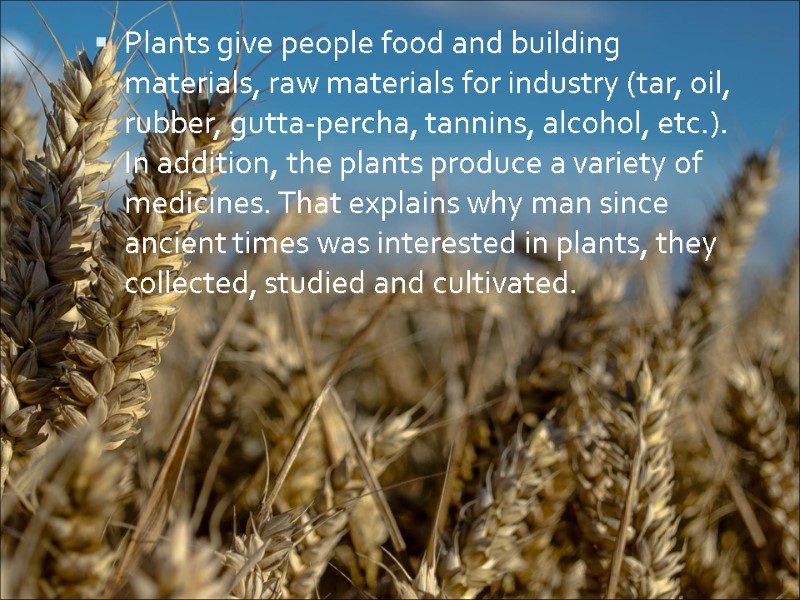 Plants give people food and building materials, raw materials for industry (tar, oil, rubber, gutta-percha, tannins, alcohol, etc.). In addition, the plants produce a variety of medicines. That explains why man since ancient times was interested in plants, they collected, studied and cultivated.
Plants give people food and building materials, raw materials for industry (tar, oil, rubber, gutta-percha, tannins, alcohol, etc.). In addition, the plants produce a variety of medicines. That explains why man since ancient times was interested in plants, they collected, studied and cultivated.
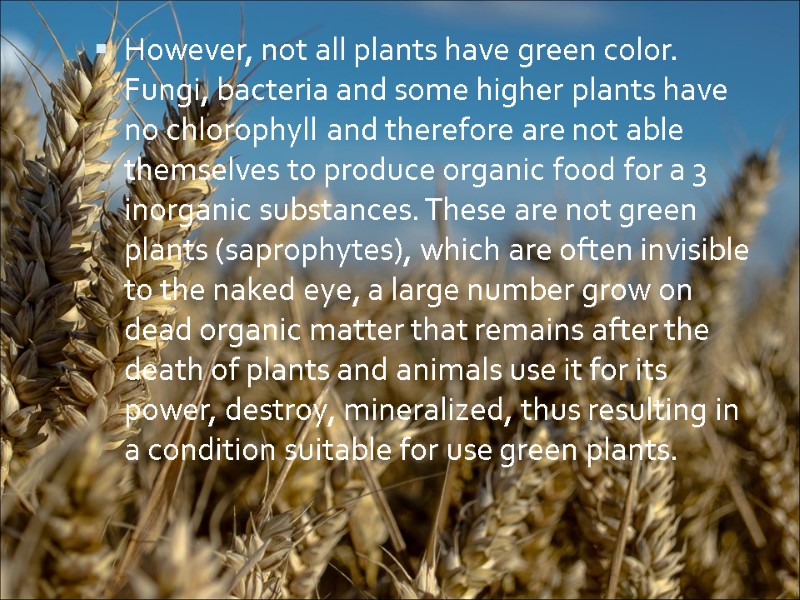 However, not all plants have green color. Fungi, bacteria and some higher plants have no chlorophyll and therefore are not able themselves to produce organic food for a 3 inorganic substances. These are not green plants (saprophytes), which are often invisible to the naked eye, a large number grow on dead organic matter that remains after the death of plants and animals use it for its power, destroy, mineralized, thus resulting in a condition suitable for use green plants.
However, not all plants have green color. Fungi, bacteria and some higher plants have no chlorophyll and therefore are not able themselves to produce organic food for a 3 inorganic substances. These are not green plants (saprophytes), which are often invisible to the naked eye, a large number grow on dead organic matter that remains after the death of plants and animals use it for its power, destroy, mineralized, thus resulting in a condition suitable for use green plants.
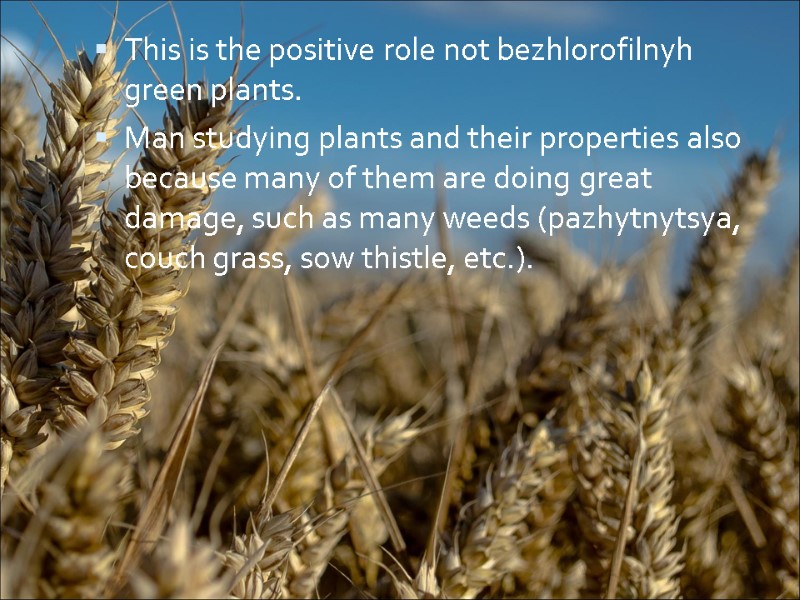 This is the positive role not bezhlorofilnyh green plants. Man studying plants and their properties also because many of them are doing great damage, such as many weeds (pazhytnytsya, couch grass, sow thistle, etc.).
This is the positive role not bezhlorofilnyh green plants. Man studying plants and their properties also because many of them are doing great damage, such as many weeds (pazhytnytsya, couch grass, sow thistle, etc.).
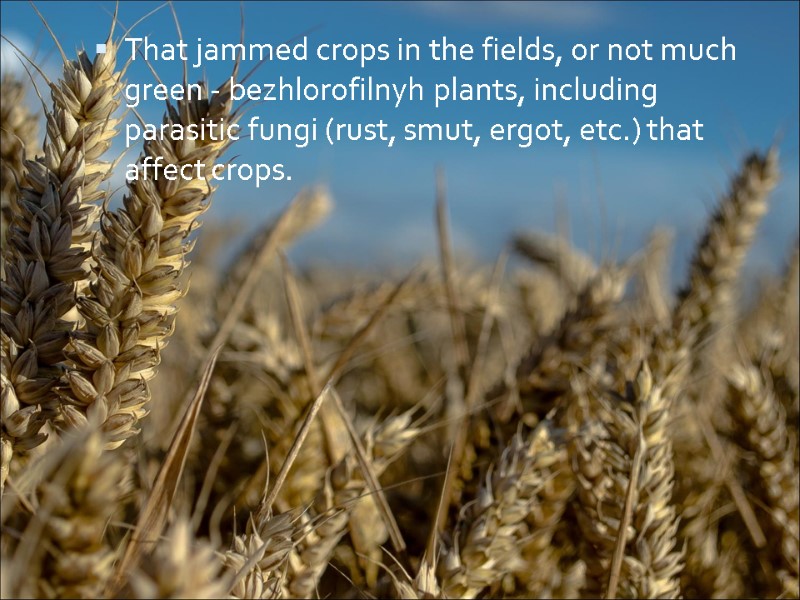 That jammed crops in the fields, or not much green - bezhlorofilnyh plants, including parasitic fungi (rust, smut, ergot, etc.) that affect crops.
That jammed crops in the fields, or not much green - bezhlorofilnyh plants, including parasitic fungi (rust, smut, ergot, etc.) that affect crops.
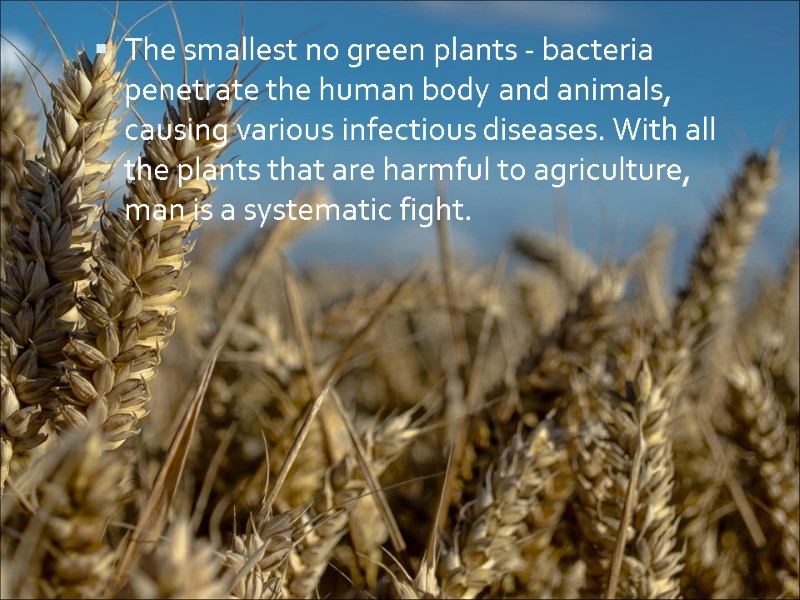 The smallest no green plants - bacteria penetrate the human body and animals, causing various infectious diseases. With all the plants that are harmful to agriculture, man is a systematic fight.
The smallest no green plants - bacteria penetrate the human body and animals, causing various infectious diseases. With all the plants that are harmful to agriculture, man is a systematic fight.





